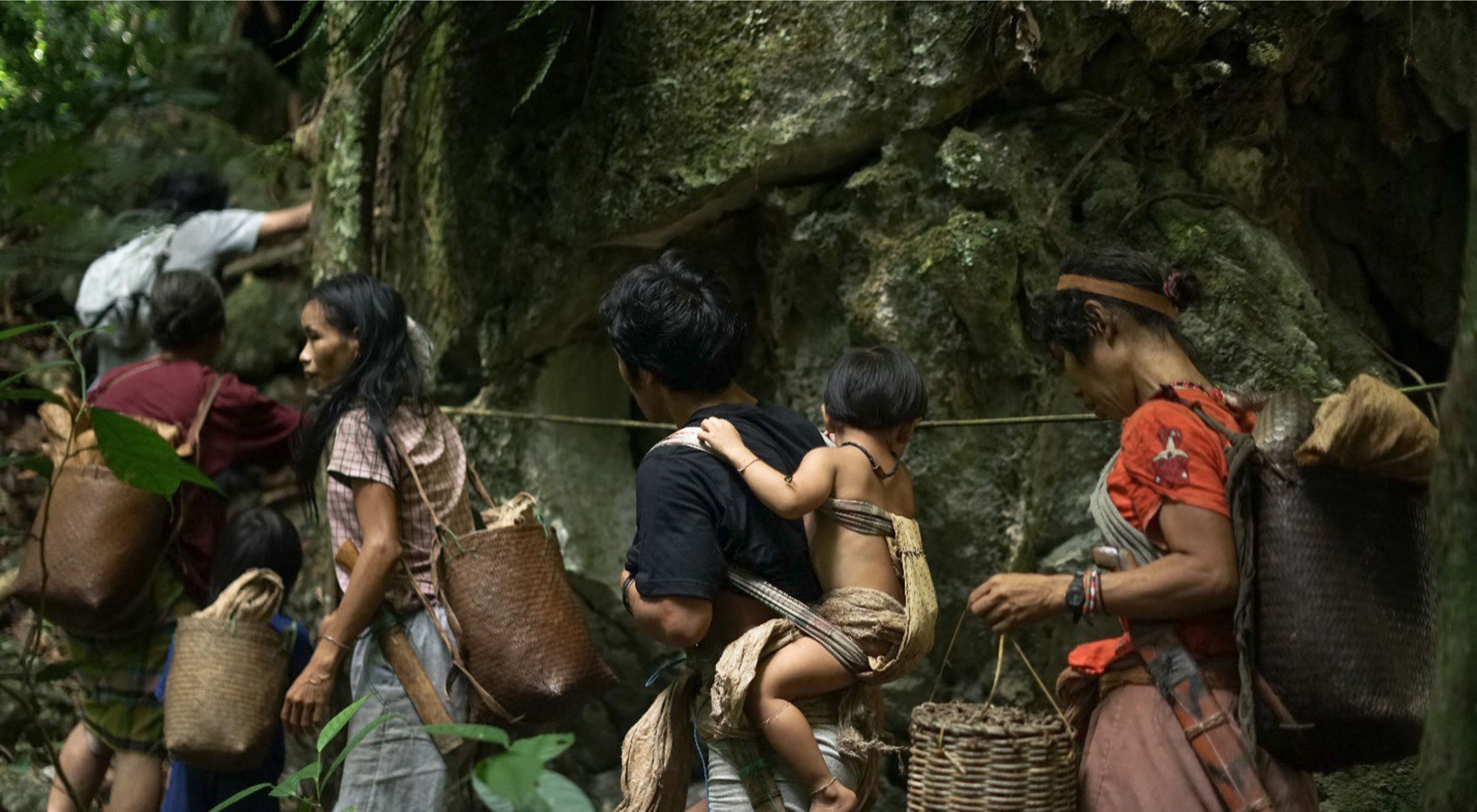Media Contacts
-
Maria Adityasari
Communication Specialist YKAN
Yayasan Konservasi Alam Nusantara
Email: maria.adityasari@ykan.or.id
Dozens of Punan Batu people who live in the Batu Benau Forest area, Sajau, Bulungan Regency, North Kalimantan, witness the symbolic handover of the district head's decree on Recognition and Protection of the Punan Batu Benau Sajau Customary Law Community (MHA) , on June 2, 2023. Conducted in Liang Meriam, one of the residential areas of Punan Batu Benau Sajau residents, this handover was done directly by the Regent of Bulungan Syarwani, M.Sc, and witnessed by Regional Secretary of Bulungan Risdianto, researcher Mochtar Riady Institute Pradiptajati Kusuma, and Senior Manager Provincial Government of Yayasan Konservasi Alam Nusantara (YKAN) Niel Makinuddin.

Regent Decree Number 188.45/319 of 2023 concerning Recognition and Protection of the Punan Batu Benau Sajau Customary Law Community (MHA) was signed on April 3, 2023. This legality is the foundation for their future certainty, both for the living space and culture of the last active hunter-gatherer community in Kalimantan.
“This is part of the local government's commitment to continue to provide recognition and protection to Punan Batu residents in Sajau village. And we are also committed to protecting the Benau Forest area so that it remains sustainable and becomes a place of life for the Punan Batu Benau Sajau community. We preserve the forest, we preserve the people," said the Regent of Bulungan Syarwani, M.Sc when handing over the Regent's SK document to Akim Asut, the traditional elder of Punan Batu Benau Sajau.
The Benau Forest is a source of livelihood for the people of Punan Batu to take shelter, find food, and at the same time preserve traditions. The total number of these indigenous communities is around 100 people and they still practice a nomadic life, adopt a lifestyle that is in harmony with nature and have a strong dependence on the presence of forests. The need for understanding is completely taken from nature. In the past, they lived in 17 burrows, but now only 5 of them are filled. Some of them started setting up makeshift huts near the river, which became a source of water and food. “Now we are starting to find it difficult to hunt. When I was little, it was easy to get game. But now, one or two days it is not certain to get it,” recalled Akim Asut, who is now around 70 years old. Increasingly difficulty to find food is the main challenge along with the changing land use around them.



“I am happy today with the handing over of our customary recognition. I hope that the forest where I live will be protected, I will have food, and my traditions can be carried om," he added
Since 2021, after receiving information and research results from the Eijkman Institute for Molecular Biology, YKAN has assisted the Punan Batu Benau Sajau community and facilitated the community to receive recognition and protection as indigenous peoples (MHA) by the Bulungan District Government. MHA's acknowledgment is the first step to then push for the proposal of the Batu Benau Forest, their area of residence, as a customary forest.
This area is very important and unique, perhaps even the only one in Kalimantan, where the karst ecosystem is still used as a residence for a group of people. Working together with the Provincial Government of North Kalimantan and the Government of Bulungan Regency, YKAN also assisted in encouraging the establishment of a geopark for the Mount Batu Benau area. The existence of this designation is to improve the community-based economy, conservation, and research and education needs. The latest research from the Karst Geography Study Group at Gadjah Mada University identified 11 points of geological diversity that have the potential to be used as geological heritage (geoheritage).

"The Provincial Government of North Kalimantan and the Government of Bulungan Regency have a strong commitment. The process of determining MHA is very fast, only around 1.5 years. This decree is the initial stage of recognition. The next stage is the protection of their living space and from a conservation perspective. This includes protection of their basic services, namely food, education and health. We work closely with the provincial government, district government, the business community, and academia to formulate and agree on necessary options for living space for the Punan community. Because the Punan people cannot live without forests,” concluded YKAN Senior Manager Provincial Government Niel Makinuddin.
Yayasan Konservasi Alam Nusantara (YKAN) is a scientific-based non-profit organization that has been present in Indonesia since 2014. With the mission of protecting lands and waters as life support systems, we provide innovative solutions to realize the harmony of nature and humans through effective natural resource management, prioritizing a non-confrontational approach, and building a network of partnerships with all stakeholders for a sustainable Indonesia. For more information, visit ykan.or.id.


